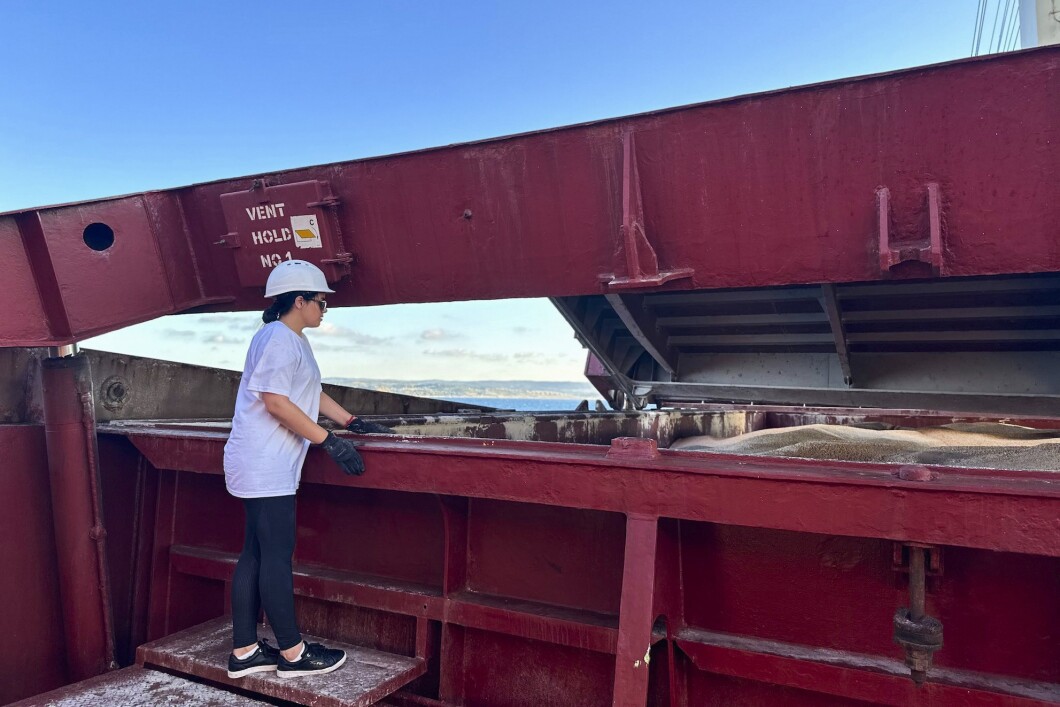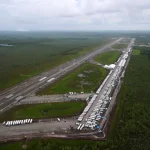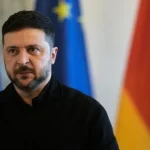
Russian President Vladimir Putin doesn’t have the stomach to enforce his renewed blockade of Ukraine’s grain exports, Ukrainian officials say.
“If Russia doesn’t participate, and if it attacks the [grain] ships, it will be a huge blow to its image in the world, among the Global South,” senior Ukrainian lawmaker Oleksandr Merezhko, who chairs the foreign affairs committee in the Ukrainian parliament, told the Washington Examiner. “So I don’t think that Russia would risk to attack Ukrainian ships carrying the grain going to the Global South and helping to prevent — well, actually, world hunger.”
CONSERVATIVE NDAA AMENDMENTS UNLIKELY TO MAKE IT INTO THE SENATE’S VERSION
Merezhko’s supposition raises the possibility of a high-stakes game of chicken that U.S. officials regard as an anxious prospect. Yet it has traction in Kyiv, to judge from Ukrainian President Volodymyr Zelensky’s proposal that Turkey and the United Nations ignore Putin’s decision to scrap a deal that has allowed 32.9 million metric tons of grain to leave Ukraine over the last year.
“No one has the right to destroy the food security of any nation,” Zelensky said in his Monday evening address. “If a bunch of people somewhere in the Kremlin think that they supposedly have the right to decide whether food will be on the table in different countries: Egypt or Sudan, Yemen or Bangladesh, China or India, Turkey or Indonesia … then the world has an opportunity to show that blackmail is not allowed to anyone.”
Russian, Turkish, and Ukrainian leaders launched a “joint coordination center” under the auspices of the U.N. last year that enabled grain-laden Ukrainian cargo ships to leave their home ports and pass through the Bosphorus Strait after passing an inspection. The process allowed 32.9 million metric tons of grain to leave the Black Sea over the last year, easing an upward pressure on global food prices that threatened to choke some of the world’s poorest countries.
“And the Black Sea Grain Initiative can and should keep operating – if without Russia, then without Russia,” Zelensky said. “The agreement on the export of grain – this is an agreement with Turkiye and the UN – remains valid. The only thing that is needed now is its careful implementation – and decisive pressure from the world on the terrorist state.”

President Joe Biden’s team isn’t so sure. “If Russia is ending this initiative and sending a message that grain cannot and other food products cannot leave Ukraine unimpeded, even if there are other options, I think it will likely have a profound chilling effect on the ability to pursue them,” Secretary of State Antony Blinken told reporters earlier Monday. “Other countries, companies, shippers, etc. will be very concerned about what happens to their ships and to their personnel if Russia is opposing … any export of food products from Ukraine.”
Putin scuttled the deal on the grounds that Russia has not received the benefits it expects under the terms of the pact.
“Unfortunately, the part of the Black Sea agreement that concerns Russia has not yet been fulfilled. As a result, it has been terminated,” Kremlin spokesman Dmitry Peskov told reporters. “As soon as the Russian part [of the deal] is fulfilled, the Russian side will immediately return to the implementation of this deal.”
The Kremlin chief tried to shift the blame for the collapse of the deal in a phone call this week with South African President Cyril Ramaphosa that downplayed the consequences of the decision for developing countries.
“Moreover, the main goal of the deal, namely, the shipment of grain to needy countries, including those on the African continent, has not been implemented,” Peskov said.
Yet U.N. Secretary-General Antonio Guterres made a point of blaming the Kremlin.
“The World Food Programme has shipped more than 725,000 tons to support humanitarian operations — relieving hunger in some of the hardest hit corners of the world, including Afghanistan, the Horn of Africa, and Yemen,” he told reporters Monday. “At a time when the production and availability of food is being disrupted by conflict, climate change, energy prices, and more, these agreements have helped to reduce food prices by over 23% since March last year.”
Guterres also rejected the Kremlin’s plaintive justifications, emphasizing in a letter to Putin, which he deemed “necessary to quote at length,” that the U.N. has “delivered breakthroughs even in some of the most challenging areas of trade facilitation” over the last year.
“Today’s decision by the Russian Federation will strike a blow to people in need everywhere,” he said. “But it will not stop our efforts to facilitate the unimpeded access to global markets for food products and fertilizers from both Ukraine and the Russian Federation. I particularly want to recognize the efforts of the government of Turkey in this regard. Looking ahead, our goal must continue to be advancing global food security and global food price stability.”
CLICK HERE TO READ MORE FROM THE WASHINGTON EXAMINER
The Biden administration resisted behind-the-scenes pressure from central and Eastern European allies to join Turkey in defying the blockade last year, before the initial establishment of the U.N. process.
“We’ll look to see what else can be done to find other ways to get Ukrainian food products on the world market,” Blinken said. “But in terms of the volumes necessary, it’s really hard to replace what’s now being lost as a result of Russia weaponizing food.”





